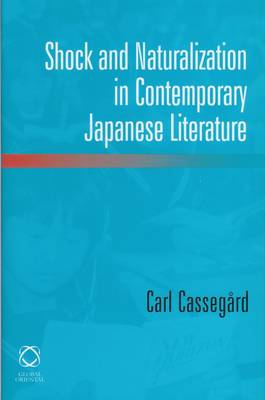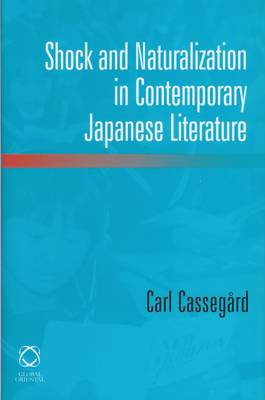
Door een staking bij bpost kan je online bestelling op dit moment iets langer onderweg zijn dan voorzien. Dringend iets nodig? Onze winkels ontvangen jou met open armen!
- Afhalen na 1 uur in een winkel met voorraad
- Gratis thuislevering in België vanaf € 30
- Ruim aanbod met 7 miljoen producten
Door een staking bij bpost kan je online bestelling op dit moment iets langer onderweg zijn dan voorzien. Dringend iets nodig? Onze winkels ontvangen jou met open armen!
- Afhalen na 1 uur in een winkel met voorraad
- Gratis thuislevering in België vanaf € 30
- Ruim aanbod met 7 miljoen producten
Zoeken
€ 180,45
+ 360 punten
Omschrijving
This study introduces the concepts of naturalization and naturalized modernity, and uses them as tools for understanding the way modernity has been experienced and portrayed in Japanese literature since the end of the Second World War. Special emphasis is given to four leading post-war writers - Kawabata Yasunari, Abe Kobo, Murakami Haruki and Murakami Ryu. The author argues that notions of 'shock' in modern city life in Japan (as exemplified in the writings of Walter Benjamin and George Simmel), while present in the work of older Japanese writers, do not appear to hold true in much contemporary Japanese literature: it is as if the 'shock' impact of change has evolved as a 'naturalized' or 'Japanized' process. The author focuses on the implications of this phenomenon, both in the context of the theory of modernity and as an opportunity to reevaluate the works of his chosen writers.
Specificaties
Betrokkenen
- Auteur(s):
- Uitgeverij:
Inhoud
- Aantal bladzijden:
- 256
- Taal:
- Engels
Eigenschappen
- Productcode (EAN):
- 9781905246298
- Verschijningsdatum:
- 1/03/2007
- Uitvoering:
- Hardcover
- Formaat:
- Genaaid
- Gewicht:
- 499 g

Alleen bij Standaard Boekhandel
+ 360 punten op je klantenkaart van Standaard Boekhandel
Beoordelingen
We publiceren alleen reviews die voldoen aan de voorwaarden voor reviews. Bekijk onze voorwaarden voor reviews.











